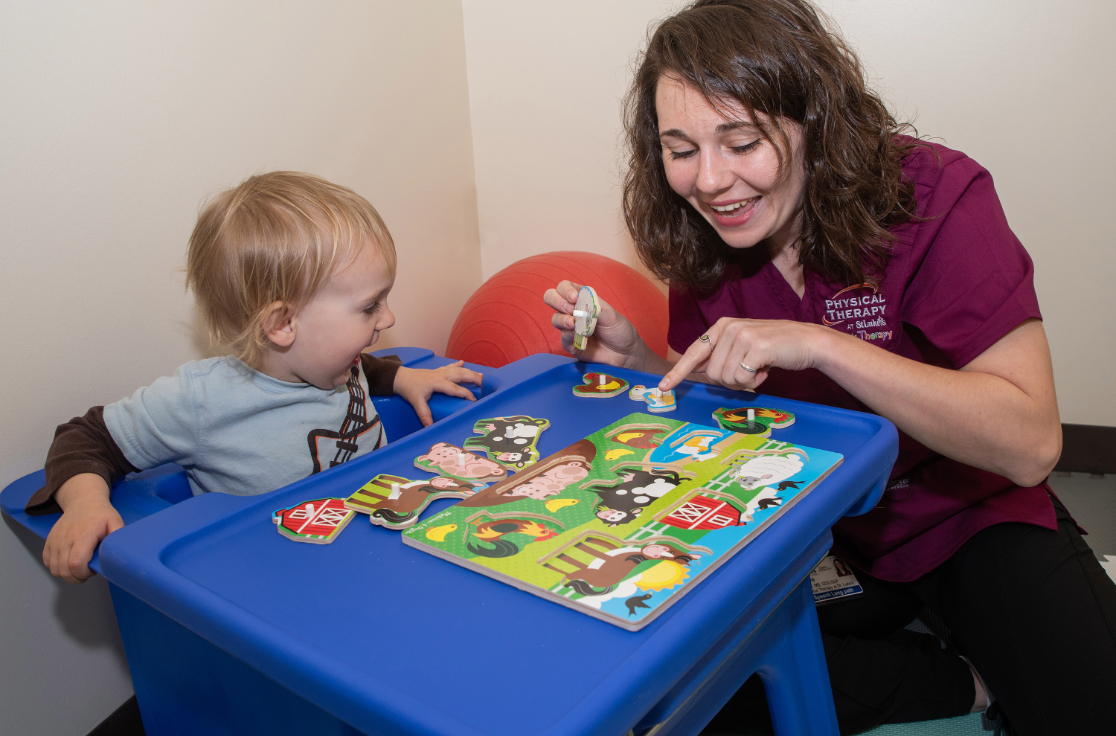Pediatric Therapy
Optimize your child’s functioning skills with pediatric physical, occupational, and speech therapy.
Schedule Appointment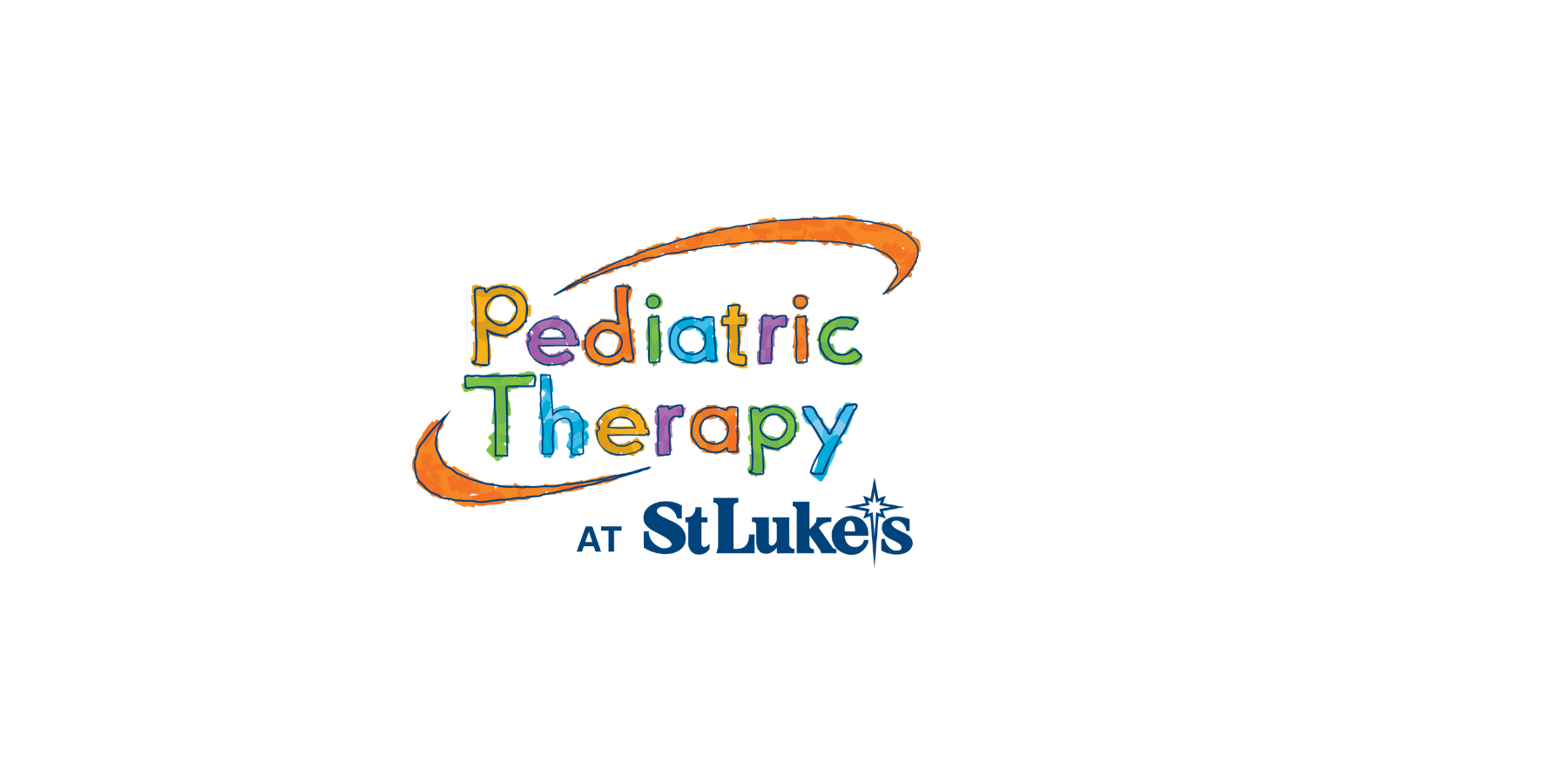
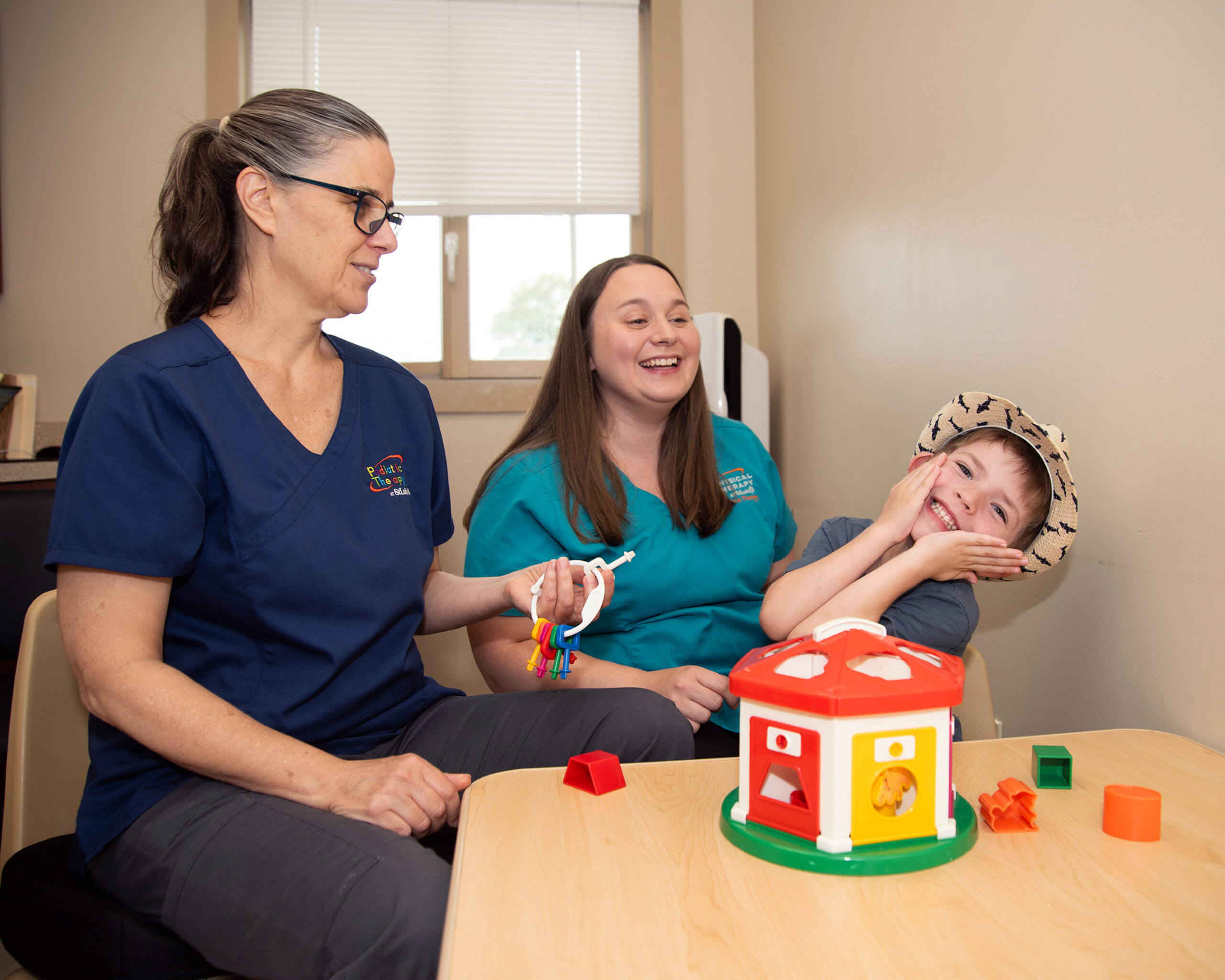
Pediatric Therapists
Pediatric Therapy at St. Luke’s offers a multidisciplinary approach for the treatment of infants to adolescent patients. We work closely with parents and caregivers to give them the opportunity to become an active participant in their child’s therapy. We educate and train families for carryover activities to help achieve the best possible results for their child.
We offer the following Pediatric Therapy:
- Pediatric Physical Therapy
- Pediatric Occupational Therapy
- Pediatric Speech Therapy
Get Scheduled Today!
Help your child get the relief and recovery they need now, without a prescription! Pediatric Therapy at St. Luke’s is a network of fully equipped facilities conveniently located in communities throughout eastern Pennsylvania and western New Jersey. Our friendly and highly trained professional therapists are committed to providing personalized care focusing on your child’s individual needs.
Call one of our Pediatric locations to schedule your appointment today!
Pediatric Therapy Programs
Physical Therapy
Our Pediatric Physical Therapists address a child’s gross motor skills, strength, balance, coordination, and mobility for participation in play and everyday activities.
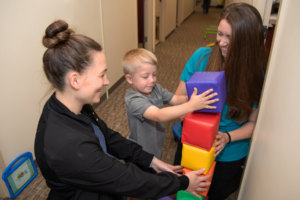
Our Pediatric Physical Therapists evaluate and treat a wide range of diagnoses. Reasons to have your child evaluated include the following:
- Prematurity/NICU Graduate
- Torticollis and plagiocephaly
- Brachial Plexus Injury
- Developmental Delay
- Spinal Muscular Atrophy
- Muscular Dystrophy
- Toe walking
- Autism Spectrum Disorder
- Orthopedic conditions
- Club Foot
- Spina Bifida
- Cerebral Palsy
Occupational Therapy
Our Pediatric Occupational Therapists assess and treat areas of a child’s development that may impact participation in home, school, daycare, and the community. These skills include sensory processing skills, self or emotional regulation, fine motor skills, visual motor skills, dressing skills and feeding or adaptive skills.
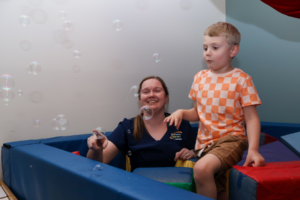
Our team of experts evaluate and treat a wide range of diagnoses. Reasons to have your child evaluated include the following:
- Prematurity/NICU Graduate
- Developmental Delay
- Sensory processing/self-regulation difficulties
- Delayed fine motor skills
- Not attaining activities of daily living milestones (bathing/dressing/feeding)
- Neurodevelopmental diagnosis
- Autism Spectrum Disorder
- Seeming “clumsy” or bumping into things frequently
Speech Therapy
Physical Therapy at St. Luke’s offers speech, swallow, and communication-based therapies that can help treat a wide variety of conditions. Our team of speech-language pathologists and audiologists are experienced in improving communication for patients of all ages.
Speech-language pathologists (SLP) diagnose and treat communication and swallowing disorders in children and adults. The difficulties that one experiences may be a result of neurological disorders, developmental disabilities, learning disabilities, physical problems, voice pathology, hearing impairments, and emotional disorders.
Common Conditions Treated:
- Difficulty producing sounds clearly
- Stuttering or other fluency disorders
- Voice disorders
- Difficulty producing or understanding language
- Feeding and/or swallowing difficulty
- Memory difficulties
- Word finding difficulties

Early Intervention
What is Early Intervention?
In Pennsylvania, Early Intervention is a FREE service for children between the ages of 0-3. This is meant to support early childhood development. Parents/caregivers can request an evaluation if they have concerns about their child’s development, or if a daycare teacher or doctor has mentioned concerns. To request an evaluation, parents/caregivers can contact the department of Early Intervention in their county. A doctor’s referral/prescription is not necessary.
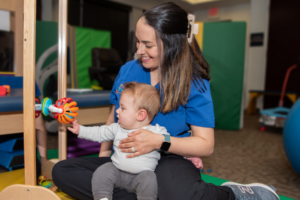
Who can receive Early Intervention?
After receiving an initial evaluation, if your child is noted to have a delay of 25% or more than other children his/her age, they will qualify to receive one or more of the following services:
- Physical Therapy
- Occupational Therapy
- Speech Therapy
- Special Instruction
What is the parent/caregiver’s role in Early Intervention?
Early Intervention services are meant to provide parents/caregivers with training and coaching to support their child’s development. Parents/caregivers will be asked to set goals for the child so that the focus of services can address what is most important to the family. During Early Intervention sessions, parents/caregivers can ask questions about development and learn ways to help their child’s development during daily activities. It is most important to find a quiet place with limited interruptions during Early Intervention sessions. This may mean keeping pets in another room and muting cellphones.
Where does Early Intervention take place?
Early Intervention services are provided in the child’s natural environment. This may be at home, at daycare or in the community at a park, library, or grocery store.
How is Early Intervention different from Outpatient Therapy?
Early Intervention services are provided in the child’s natural environment, while outpatient therapy services take place at a clinic. Early Intervention is a FREE service funded through the state, while outpatient therapy is billed through medical insurance. Early Intervention services are provided in the child’s home until the age of 3, while outpatient therapy can continue throughout a child’s lifespan.
Developmental Milestones
Learn more about your child’s important developmental milestones with our helpful list
Patient Story - John Welsh
This heartwarming story showcases John who, despite being nonverbal and struggling with motor skills, has made remarkable progress thanks to Physical, Occupational, and Speech Therapy. Now, he’s not only caught up with his peers but is also thriving in his daily activities and enjoying playtime with others. For a more detailed look into John’s story, be sure to watch the video!
Schedule an Appointment
Our experienced team at Physical Therapy at St. Luke's is here to help you on your journey to recovery and improved mobility.
Schedule